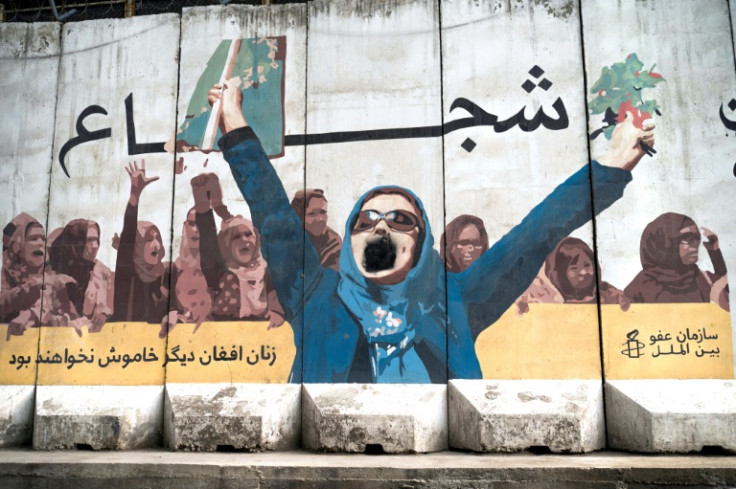The Taliban have turned the rights and aspirations of girls in Afghanistan into 'a mass graveyard'
The Taliban officially seized Afghanistan in 2021. Two years later, girls are banned from having an education and are ultimately compelled to stay at home.

Human rights experts warned that there could be a systematic "gender apartheid" and "gender persecution" in Afghanistan. The message came on Monday (19 June), the opening day of the Human Rights Council summer session.
In the August of 2021, the Taliban officially seized Afghanistan. Over the past two years, schools for girls in Afghanistan have been forced to close across the country. Around eight million girls have lost their rights towards an education and equal opportunities.
In Afghanistan, women and girls are prohibited from going to parks, gyms, fairs, and public baths. Women and girls are also forced to cover up in public. According to the UN Human Rights Council, women are ultimately compelled to stay at home in Afghanistan.
The Taliban have employed punishment procedures for those who refuse the Sharia laws, which include lashes, stoning, amputations, public executions, imprisonment, and torture.
Taliban are using sports stadiums to publicly punish women & men in Afghanistan. This is Kandahar province.
— Nazrana G Yousufzai 🦋 (@Nazranausufzai) January 17, 2023
pic.twitter.com/UOlX5DG17X
Afghanistan is currently the only country in the world where girls are refused a secondary school education.
In the UK's statement regarding the human rights situation in Afghanistan, Simon Manley, the Permanent Representative of the World Trade Organisation (WTO), stated: "Taliban have continued their campaign of repression and violence against Afghan women and girls."
There has been a negative impact on the economy in Afghanistan after women have been forced to step down from important job roles. For instance, the healthcare system relies on women and young girls who aspire to become medical professionals.
"Due to the Taliban's restrictions on female workers in the humanitarian aid and development sector, they are unable to provide life-saving support to women and girls in their own country", Simon Manley added.
There are currently more than 28 million people in Afghanistan who are seeking humanitarian support. More than half of the population seeking humanitarian aid are women and children.
The United Nations (UN) said that Afghanistan while being under the rule of the Taliban, is the "most repressive country in the world" for women and girls' human rights.
At the Human Rights Council session, the call for the "de facto authorities" to respect and restore the human rights of women and girls in Afghanistan was prominent.
The Human Rights Council session also urged the international community, including the UN, to increase their attention to the widespread discrimination against women and girls in Afghanistan.
"The @UN Human Rights Council’s responsibility is not only to hear about the situation for women & girls in Afghanistan, but also to do everything in its power to restore, protect & promote their rights & freedoms."@SR_Afghanistan Richard Bennett speaking at #HRC53 in @UNGeneva pic.twitter.com/g5tSte0mu5
— United Nations Human Rights Council 📍 #HRC53 (@UN_HRC) June 19, 2023
Richard Bennett, a UN Special Rapporteur, called the gender-based oppression: " Grave, systematic and institutionalised discrimination against women and girls is at the heart of Taliban ideology and rule, which also gives rise to concerns that they may be responsible for gender apartheid."
Shaharzad Akbar, the Executive Director of Afghan NGO Rawadari, told the Human Rights Council that women in Afghanistan have spoken about the injustice and feeling "buried alive, breathing but not being able to do much else without facing restrictions and punishments, their lives held still while the lives of the men around them, their male children, their brothers, their husbands, move forward."
Shaharzad Akbar also highlighted the contrast between Taliban rule and other neighbouring Islamic countries, where women are able to seek an education, follow their aspirations, and hold political opinions.
Shaharzad Akbar declared: "Taliban have turned Afghanistan to a mass graveyard of Afghan women and girls' ambitions, dreams and potential."
Simon Manley, the Permanent Representative of the WTO concluded: "So let me repeat our call to the Taliban: Re-open the schools. Let girls learn. Let women work. End the violence and discrimination against women and girls."
It is important to note that no country so far, has officially recognised the Taliban as Afghanistan's legitimate leaders.
© Copyright IBTimes 2025. All rights reserved.






















